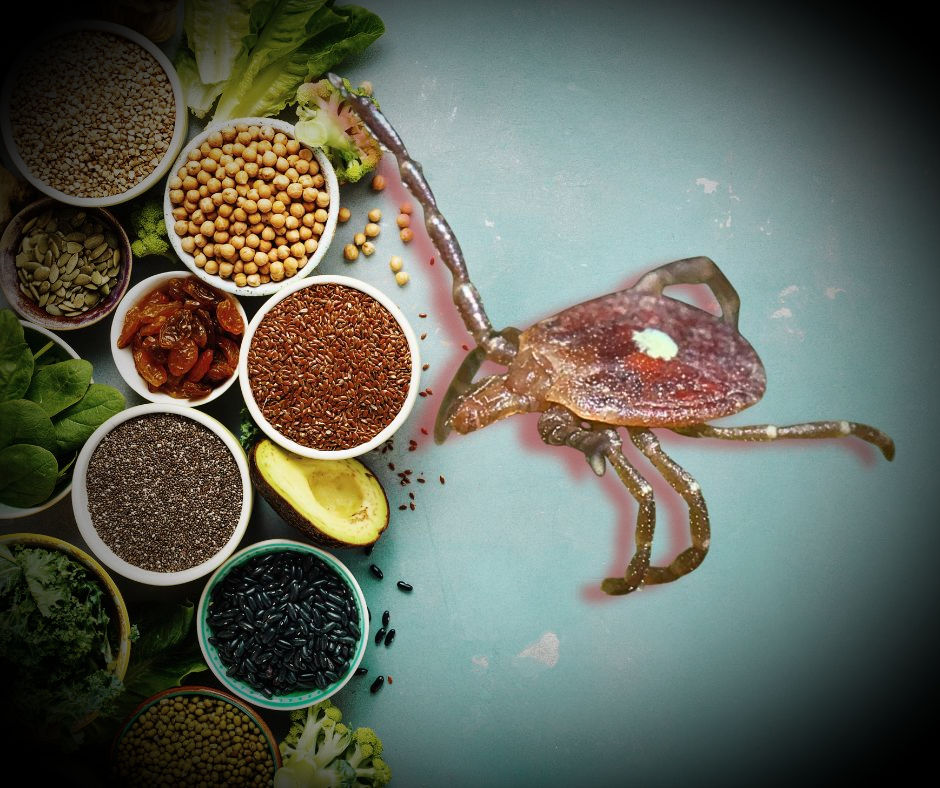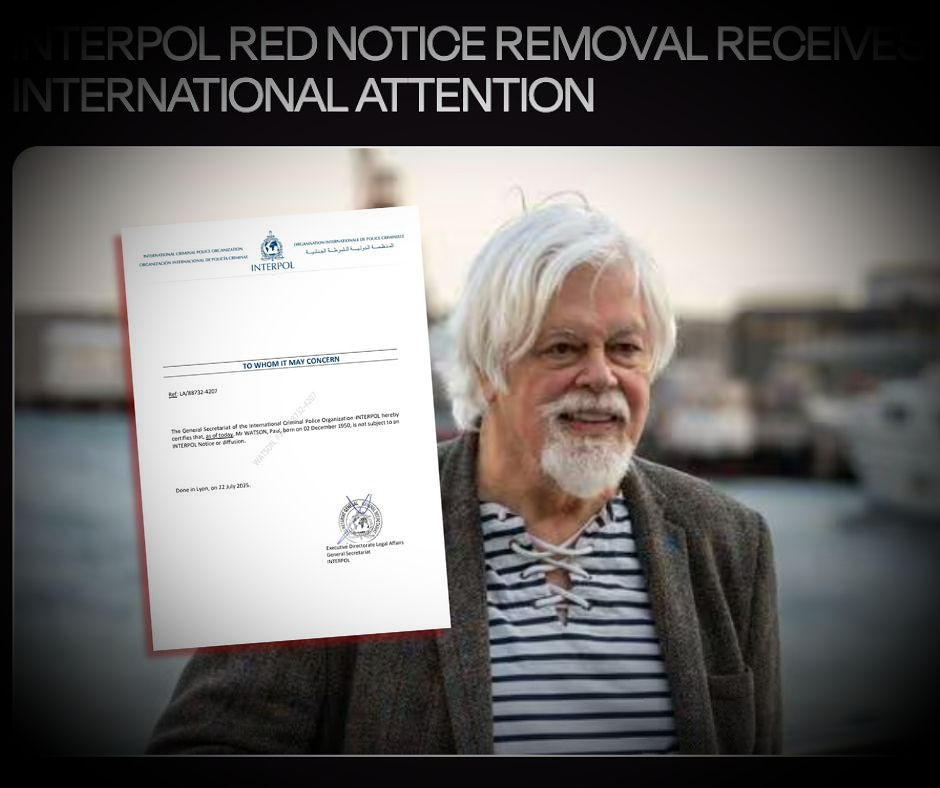Don’t Blame Me, I’m Only a Messenger
- Paul Watson

- 28 sept. 2025
- 5 min de lecture
By Captain Paul Watson
Earlier this month I was giving a talk at the Fête de Humanite event in Paris to about 1500 people when a small group of about 200 began screaming in protest because I was on stage. It was difficult to make out what they were angry about, but they seemed to think that I was advocating the extermination of seven billion people because the world is overpopulated by humanity.
They were screaming that I was an ecofascist. It was the first time I ever heard the term, so I was surprised to be labeled as such.
I attempted to clarify my position on human over-population but they we’re not interested in listening. Not that I care because they were very wrong about what I said and about how some reporters have misquoted me completely out of context.
Let me say first of all, that I have never and will never condone the killing of people for any reason, anytime or anywhere.
My views on human population are not political. It is an ecological viewpoint based on observation of fact and based on observation of, and an understanding of both human and natural history.
It is clear to me that the laws of ecology simply cannot support 8 billion meat-eating fish-eating hominid primates without causing extreme diminishment in the numbers of other species and extreme destruction to both terrestrial and oceanic ecosystems. We have seen this diminishment over the last 75 years as tens of thousands of wild species, both plant and animals have been severely diminished as domestic animal populations have increased exponentially. To support 8 billion people currently requires a slaughtering of some 90 billion animals every year and the exploitation of hundreds of billions of fish of which some 40% are caught illegally.
There is no sustainable fishing industry on this planet and industrialized fishing is simply no longer an option. Some 45% of industrialized fishing serves the fish meal market to provide cheap fodder for farm raised fish and factory farmed chickens and pigs.
Since 1950 There has been a 40% diminishment in phytoplankton populations in the sea and phytoplankton provides around 70% of the oxygen in the air that we breathe in addition phytoplankton absorbs a tremendous amount of CO2 every year.
When I was born in the year 1950, the human population numbered approximately 3 billion. During the last 75 years it has increased to 8 billion plus and reason dictates that this number will increase substantially over the next 75 years.
At some point this will lead to the inability of the carrying capacity of global ecosystems to support these numbers. In addition, these 8 billion people are completely dependent upon fossil fuel production and fossil fuel is a finite resource and in addition to providing human energy needs, fossil fuels also provide essential fertilizers for agricultural production. This resource is now irreplaceable by alternative technologies.
The three basic laws of ecology are very clear. The first is the law of diversity, that the strength of an ecosystem is dependent upon the diversity of species within it. The second law of ecology states that all species within an ecosystem are interdependent with each other.
The third law of ecology is the limit on finite resources. Removing a large percentage of finite resources by one species diminishes carrying capacity to support all other species and that leads directly to diminishment of diversity and interdependence with the certain consequence of ecological collapse, meaning the inability of an ecosystem to continue to support diversity and interdependence.
When this happens the consequences for humanity will be catastrophic.
Humanity survives by the grace of the diversity of species and the interdependence of those species with each other. For example, we could not survive on this planet if a virus wiped out the grass family. We could not survive on this planet without a healthy insect, microbial, fungal and plant diversity.
Human beings are not islands, independent of the ecosystems that supports us.
This is why I support a biocentric paradigm, an understanding that if we are to survive, we must learn to live in harmony with all the other species which make it possible for us to be here. We cannot have 8 billion plus meat-eating, fish-eating hominids utilizing a greater share of resources.
Not only would this lead to devastating consequences for all other life forms on the planet it will ultimately lead to the destruction of humanity.
I believe this is an ecological reality that cannot be denied, and the evidence is quite clear that our future will be dictated by ecological laws, not the laws of humanity.
There are some misinformed people who say that I advocate the extermination of human beings to lower human populations. This is absurd. I have never advocated any such thing nor would I ever. I have been a staunch opponent of war and genocide, and I will continue to hold that position.
What I have been saying is that if nothing is done to address this situation, it will lead to a horrific crash in population. If the grass family (grains, grasses, corn, etc. were to be removed from eco-systems by a virus or other ecological factors, that would also mean the extinction of numerous herbaceous animals which of course would lead to the extinction of predatory animals that prey upon them. We would have a world incapable of supporting large mammals including human beings.
When people have asked me what the answer to this is, I've usually say that if somebody can come up with an answer they would certainly be awarded the Nobel Prize.
All I can do is offer a practical solution. My proposed solution would include a transition to a purely plant-based diet universally. An end to industrialized mechanized fishing operations and an end to industrialized factory farming. I would also propose an end to the military industrial complex and war. Of course, this is all considered rather impractical economically and is generally viewed as an impossible objective.
However, I've always said that the answer to an impossible problem is to find the impossible solution and that requires the virtues of passion, courage, and imagination. This is what I have always believed can make a difference, passionate, courageous individuals, with the imagination to find solutions.
Do I want to see 6 to 8 billion people removed from the planet? That is a monstrous idea. In fact, it is my greatest fear and concern, but unless the ecological realities are addressed that will be the inevitable consequence.
Because I see the ecological consequences of unlimited human population growth, I do envision a devastating and relatively rapid reduction of global human populations along with the reduction of tens of thousands of non-human species populations. I also see these consequences becoming significantly more concerning with each passing decade.
Delivering this message of ecology does not make me an advocate of humanity’s extermination. On the contrary it reflects my deepest concern about avoiding a dystopian future for all of humanity.








Commentaires